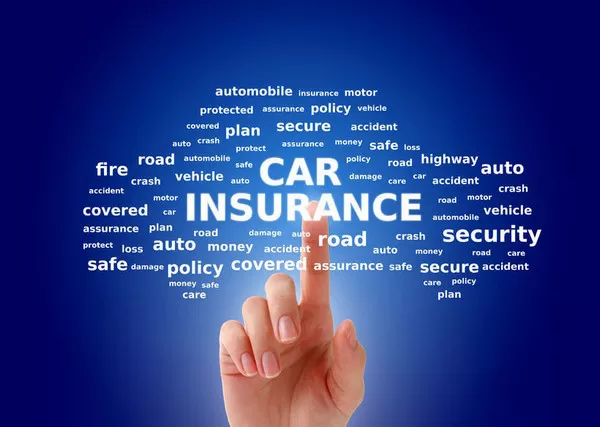Non-owned car insurance is a type of coverage that many people may not be familiar with, but it can be extremely useful in certain situations. This article will explain what non-owned car insurance is, how it works, who needs it, and the benefits and limitations associated with it.
Understanding Non-Owned Car Insurance
1. Definition of Non-Owned Car Insurance
Non-owned car insurance is a policy that provides liability coverage when you are driving a vehicle that you do not own. This type of insurance typically covers bodily injury and property damage that you may cause to others in an accident.
2. Differences from Traditional Car Insurance
Traditional car insurance covers vehicles that you own. Non-owned car insurance, on the other hand, is designed for individuals who drive cars that belong to others. It does not cover physical damage to the car you are driving; it only covers your liability to others.
3. Who Needs Non-Owned Car Insurance
Non-owned car insurance is particularly useful for certain groups of people. Understanding who might need this type of insurance can help you determine if it is right for you.
Frequent Borrowers
If you frequently borrow cars from friends or family members, non-owned car insurance can provide you with liability coverage in case of an accident.
Rental Car Users
Individuals who often rent cars may benefit from non-owned car insurance. This coverage can be a more cost-effective option than purchasing rental car insurance from the rental company.
Business Use
Employees who use rental cars or personal vehicles for business purposes may need non-owned car insurance. This ensures they have liability coverage while conducting business activities.
Those Without a Car
People who do not own a car but occasionally drive may need non-owned car insurance. This can provide peace of mind and financial protection when borrowing or renting a vehicle.
How Non-Owned Car Insurance Works
1. Purchasing a Policy
Purchasing non-owned car insurance involves several steps. Understanding the process can help you secure the coverage you need.
Research and Compare
Start by researching and comparing different insurance companies that offer non-owned car insurance. Look for companies with good reputations and competitive rates.
Get Quotes
Request quotes from multiple insurers. Provide accurate information about your driving history and intended use of the policy to get an accurate quote.
Choose a Policy
Select a policy that meets your needs and budget. Consider the coverage limits, deductibles, and any additional features offered by the insurer.
2. Coverage Provided
Non-owned car insurance typically provides liability coverage. It is important to understand what is included in this coverage.
Bodily Injury Liability
Bodily injury liability covers medical expenses, lost wages, and other costs associated with injuries you cause to others in an accident.
Property Damage Liability
Property damage liability covers the cost of repairing or replacing property that you damage in an accident. This can include other vehicles, buildings, and other structures.
3. Exclusions and Limitations
Non-owned car insurance has certain exclusions and limitations. Being aware of these can help you understand what is and is not covered.
No Physical Damage Coverage
Non-owned car insurance does not cover physical damage to the car you are driving. If you want this coverage, you will need to purchase additional insurance from the car owner or rental company.
Personal Property
Personal property inside the vehicle is not covered by non-owned car insurance. If you want coverage for personal belongings, you may need to consider a separate policy.
Business Use Exclusions
Some non-owned car insurance policies exclude business use. Make sure to check with your insurer if you plan to use the coverage for business purposes.
Benefits of Non-Owned Car Insurance
1. Financial Protection
Non-owned car insurance provides financial protection in case of an accident. This can help you avoid significant out-of-pocket expenses for medical bills, property damage, and legal fees.
2. Peace of Mind
Having non-owned car insurance can give you peace of mind. You know you are covered if you cause an accident while driving a car you do not own.
3. Cost-Effective
Non-owned car insurance can be a cost-effective alternative to traditional car insurance or rental car insurance. This is especially true if you only drive occasionally.
How to File a Claim
1. Reporting an Accident
If you are involved in an accident while driving a non-owned car, you will need to report it to your insurance company. Follow these steps to ensure the process goes smoothly.
Gather Information
Gather all relevant information about the accident. This includes the names and contact information of other drivers, witnesses, and a description of what happened.
Contact Your Insurer
Contact your insurance company as soon as possible to report the accident. Provide them with all the information you have gathered.
2. Working with an Adjuster
After you report the accident, an insurance adjuster will be assigned to your claim. The adjuster will investigate the accident and determine the extent of your liability.
Provide Documentation
Provide any documentation requested by the adjuster. This may include police reports, medical records, and repair estimates.
Cooperate Fully
Cooperate fully with the adjuster during the investigation. This can help ensure your claim is processed quickly and fairly.
3. Claim Settlement
Once the adjuster completes the investigation, your claim will be settled. You will receive a payment for any covered damages and injuries.
Review the Settlement
Review the settlement offer carefully. If you have any questions or concerns, discuss them with your insurance company.
Accepting the Payment
If you agree with the settlement offer, accept the payment. The payment will be used to cover the costs of any damages and injuries you are liable for.
Non-Owned Car Insurance for Businesses
1. Employee Use of Rental Cars
Businesses that have employees who use rental cars for work-related purposes may need non-owned car insurance. This coverage can protect the business from liability in case of an accident.
2. Employer’s Liability
Employer’s liability coverage protects the business from being held liable for accidents caused by employees while driving non-owned vehicles.
3. Policy Considerations
When purchasing non-owned car insurance for a business, consider the following factors.
Coverage Limits
Ensure the policy has adequate coverage limits to protect the business from significant financial losses.
Exclusions
Review any exclusions in the policy to understand what is not covered.
Additional Coverage
Consider purchasing additional coverage if needed, such as physical damage coverage for rental cars.
see also: Engine Protection in Car Insurance: You Need to Know
Common Scenarios for Non-Owned Car Insurance
1. Borrowing a Friend’s Car
If you borrow a friend’s car and cause an accident, non-owned car insurance can provide liability coverage. This can help pay for injuries and damages you cause to others.
2. Renting a Car for Personal Use
When renting a car for personal use, non-owned car insurance can be a cost-effective alternative to the rental company’s insurance. It provides liability coverage in case of an accident.
3. Using a Company Car
If you use a company car for work-related purposes, non-owned car insurance can protect you and your employer from liability in case of an accident.
Comparing Non-Owned Car Insurance Policies
1. Coverage Options
When comparing non-owned car insurance policies, look at the coverage options offered by each insurer.
Liability Limits
Check the liability limits to ensure they are adequate for your needs.
Additional Coverage
See if the policy offers any additional coverage options, such as uninsured motorist coverage or medical payments coverage.
2. Cost
Compare the cost of different policies to find one that fits your budget. Keep in mind that the cheapest policy may not always provide the best coverage.
3. Reputation of Insurer
Choose an insurer with a good reputation for customer service and claims handling. Research reviews and ratings to find a reliable company.
How to Save Money on Non-Owned Car Insurance
1. Shop Around
Shop around and compare quotes from multiple insurers. This can help you find the best rates.
2. Bundle Policies
If you have other insurance policies, such as homeowners or renters insurance, consider bundling them with your non-owned car insurance. Many insurers offer discounts for bundling policies.
3. Maintain a Clean Driving Record
Maintaining a clean driving record can help you qualify for lower rates. Avoid traffic violations and accidents to keep your premiums low.
4. Raise Your Deductible
Raising your deductible can lower your premiums. Just make sure you can afford to pay the higher deductible if you need to file a claim.
5. Ask About Discounts
Ask your insurer about any available discounts. You may qualify for discounts based on factors such as your age, driving history, or membership in certain organizations.
Non-Owned Car Insurance and Liability Coverage
1. Importance of Liability Coverage
Liability coverage is crucial because it protects you from financial losses if you are responsible for an accident. It covers bodily injury and property damage to others.
2. How Non-Owned Car Insurance Provides Liability Coverage
Non-owned car insurance provides liability coverage when you are driving a vehicle that you do not own. This can include borrowed cars, rental cars, or company cars.
3. Limits and Exclusions
Be aware of the limits and exclusions of your non-owned car insurance policy. Make sure the coverage is adequate for your needs and understand what is not covered.
Conclusion
Non-owned car insurance is a valuable type of coverage for individuals who frequently drive vehicles they do not own. It provides liability protection in case of an accident and can be a cost-effective alternative to traditional car insurance or rental car insurance. By understanding how non-owned car insurance works, who needs it, and how to purchase and file a claim, you can ensure you are adequately protected when driving a non-owned vehicle. Remember to compare policies, consider the benefits and limitations, and choose an insurer with a good reputation to get the best coverage for your needs.





















